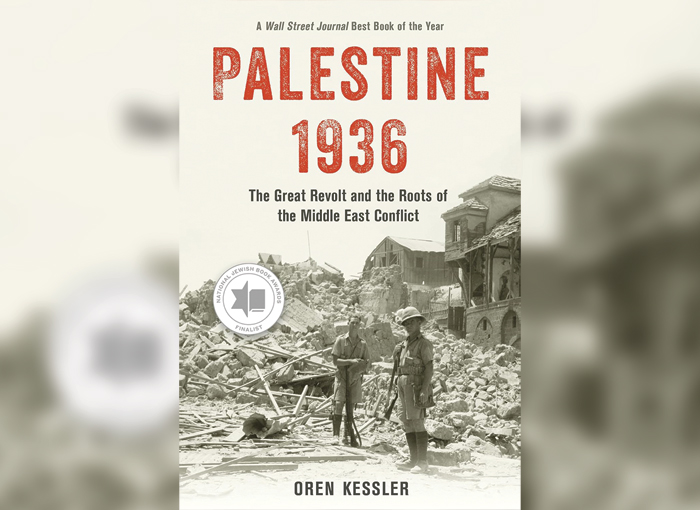Now that he’s proven he’s electable, John Kerry is ready to tell Americans why he should be elected.
Only in recent days has the Massachusetts senator started to outline detailed policy positions. Some of these having to do with foreign policy and terrorism have been of particular interest to Jewish voters.
One measure of his new seriousness was a New York meeting Sunday with about 40 Jewish organizational leaders, where Kerry elaborated at great length on his Middle East policies.
All participants interviewed by JTA described the closed-door meeting as successful.
"It would be impossible for anyone to leave that meeting not impressed," said Hannah Rosenthal, the executive director of the Jewish Council for Public Affairs.
Until now, Kerry’s campaign says, the candidate has had little breathing room for such explanatory encounters because of the grueling primary schedule and because his energies were devoted to his come-from-behind triumphs.
The campaign has hired a Jewish coordinator for New York, Lisa Gertsman. But Cameron Kerry, the senator’s brother who converted to Judaism 20 years ago when he married a Jewish women, is key to the campaign’s Jewish outreach effort.
The Kerry brothers’ own Jewish background — their paternal grandparents were born Jewish in the former Austro-Hungarian empire — gained a further wrinkle over the weekend when an Austrian genealogist revealed that two Kerry relatives died in Nazi concentration camps.
Last week, the senator forcefully defended Israel’s right to build its West Bank security barrier after a Palestinian suicide bomber killed eight people in Jerusalem.
"Israel’s security fence is a legitimate act of self-defense," Kerry said, a salve to Jews who had been concerned after Kerry described the fence to an Arab American audience in the fall as a "barrier to peace."
Participants at Sunday’s meeting said the candidate went into unprecedented detail on how a Kerry presidency would deal with the Middle East.
"He was able to talk to the complexity," said Judith Stern Peck, president of the Israel Policy Forum, which promotes greater U.S. engagement in the region. "He knows Israel; he’s been going there for years."
Kerry displayed a wide-ranging command of the issues, participants said, addressing the failure of the Oslo accords, the collapse of accountable authority in the Palestinian Authority, the role of neighboring Arab regimes and demographic threats to Israel’s future as a Jewish State.
One feature of Kerry’s outlook was using U.S. leverage with Arab allies to end incitement and pressure the Palestinians into making peace.
"He painted a picture that a Kerry presidency would be more engaged" on Israeli-Palestinian peace, "and build on the relationships he has and would hold others accountable," Rosenthal said.
Abraham Foxman, the Anti-Defamation League’s national director, said the meeting helped lay to rest a nagging concern — that relentless Democratic criticism of Bush’s foreign policy implied criticism of Bush’s closeness to Israel.
"He tried to exempt Israel from the critique of Bush’s foreign policy," Foxman said, saying Kerry agreed with administration policy on isolating Palestinian Authority President Yasser Arafat, supporting Prime Minister Ariel Sharon’s plan for unilateral withdrawal from Gaza and on the security fence.
Kerry also implicitly backed away from earlier remarks touting former President Jimmy Carter and former Secretary of State James Baker as potential envoys to the region.
This time, he named figures regarded as much more favorable to U.S. Jews, including former top Middle East envoy Dennis Ross and Sandy Berger, Clinton’s national security adviser.
Kerry said he would more aggressively pursue disarming Iran of its nuclear capability, saying the Bush administration has not done enough.
Republican strategists suggested that Kerry’s vulnerabilities in the Jewish community would have more to do with terrorism than with Israel.
"He hasn’t been strong in the defense functions of this country," former Montana Gov. Marc Racicot, the chairman of Bush’s reelection campaign, said.
Some participants at the Jewish leadership meeting expressed disappointment that Kerry never got around to discussing domestic issues of concern to Jews.
"Surely the community’s fundamental value of taking care of the vulnerable populations should have been up there on top of the agenda," Rosenthal said.
Cameron Kerry said that he believed his brother — like his party — was in lockstep with U.S. Jews on domestic issues. Of particular concern, he said, was the Bush’s administration’s appointment of hard-line conservative judges to appeals courts.
Ultimately, Cameron Kerry said, his brother would continue to be his own best counsel.
"He’s somebody who really sifts through all sides, he likes to have the facts, he’s got an inquiring mind," he said. "He doesn’t accept ideas filtered for him. He tests, challenges, is a devil’s advocate, but in the end — once he’s made up his mind — it’s full speed ahead."
JTA staff writers Rachel Pomerance in New York and Matthew E. Berger in Washington contributed to this report.























 More news and opinions than at a Shabbat dinner, right in your inbox.
More news and opinions than at a Shabbat dinner, right in your inbox.